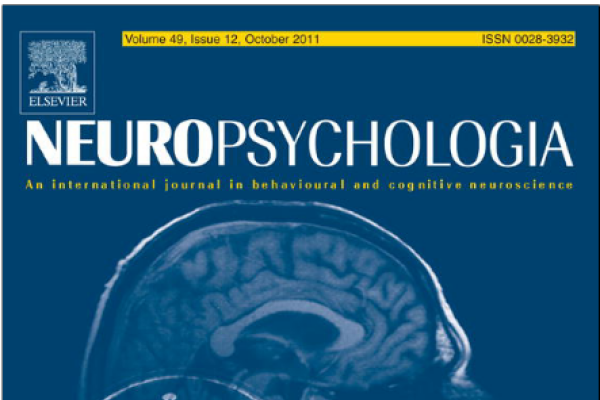2011-05-27

In recent studies by our group we accumulated evidence that the effect of certain genetic polymorphisms varies across cognitive processes. The results call in question, if a ‘risk allele’ necessarily confers a disadvantage to its carriers. In this study we provide further evidence on this issue.
Cognitive control processes may depend on contextual information, sometimes improving performance, but impairing performance if expectancies about forthcoming events induce pre-potent responses. The neurobiological bases of these effects are not understood. Here, we examine context-dependent variations of response control processes using the AX-CPT task with respect to the relevance of the functional serotonin 1A receptor polymorphism (5-HT1A C(−1019)G). The results show that, when context information is helpful to drive behavioural performance, carriers of the −1019G allele reveal compromised cognitive control. Yet, they show enhanced task performance when strong context representations would lead to declines in behavioural control. These findings are paralleled by modulations of the (Nogo)-P3 ERP-component. These results show for the first time that, even though the −1019G allele enhances the risk to develop anxiety disorders, it also confers an advantage to its carriers in terms of better cognitive control processes in conditions where contextual information compromises cognitive control. Effects of the 5-HT1A C(−1019)G polymorphism were further modulated by anxiety sensitivity. As the functional effect of the 5-HT1A C(−1019)G polymorphism has previously been shown to be rather specific for serotonergic 1A autoreceptors in the dorsal raphe nucleus (DRN), the results suggest that contextual modulations in cognitive control may be exerted by the DRN.

In recent studies by our group we accumulated evidence that the effect of certain genetic polymorphisms varies across cognitive processes. The results call in question, if a ‘risk allele’ necessarily confers a disadvantage to its carriers. In this study we provide further evidence on this issue.
Cognitive control processes may depend on contextual information, sometimes improving performance, but impairing performance if expectancies about forthcoming events induce pre-potent responses. The neurobiological bases of these effects are not understood. Here, we examine context-dependent variations of response control processes using the AX-CPT task with respect to the relevance of the functional serotonin 1A receptor polymorphism (5-HT1A C(−1019)G). The results show that, when context information is helpful to drive behavioural performance, carriers of the −1019G allele reveal compromised cognitive control. Yet, they show enhanced task performance when strong context representations would lead to declines in behavioural control. These findings are paralleled by modulations of the (Nogo)-P3 ERP-component. These results show for the first time that, even though the −1019G allele enhances the risk to develop anxiety disorders, it also confers an advantage to its carriers in terms of better cognitive control processes in conditions where contextual information compromises cognitive control. Effects of the 5-HT1A C(−1019)G polymorphism were further modulated by anxiety sensitivity. As the functional effect of the 5-HT1A C(−1019)G polymorphism has previously been shown to be rather specific for serotonergic 1A autoreceptors in the dorsal raphe nucleus (DRN), the results suggest that contextual modulations in cognitive control may be exerted by the DRN.